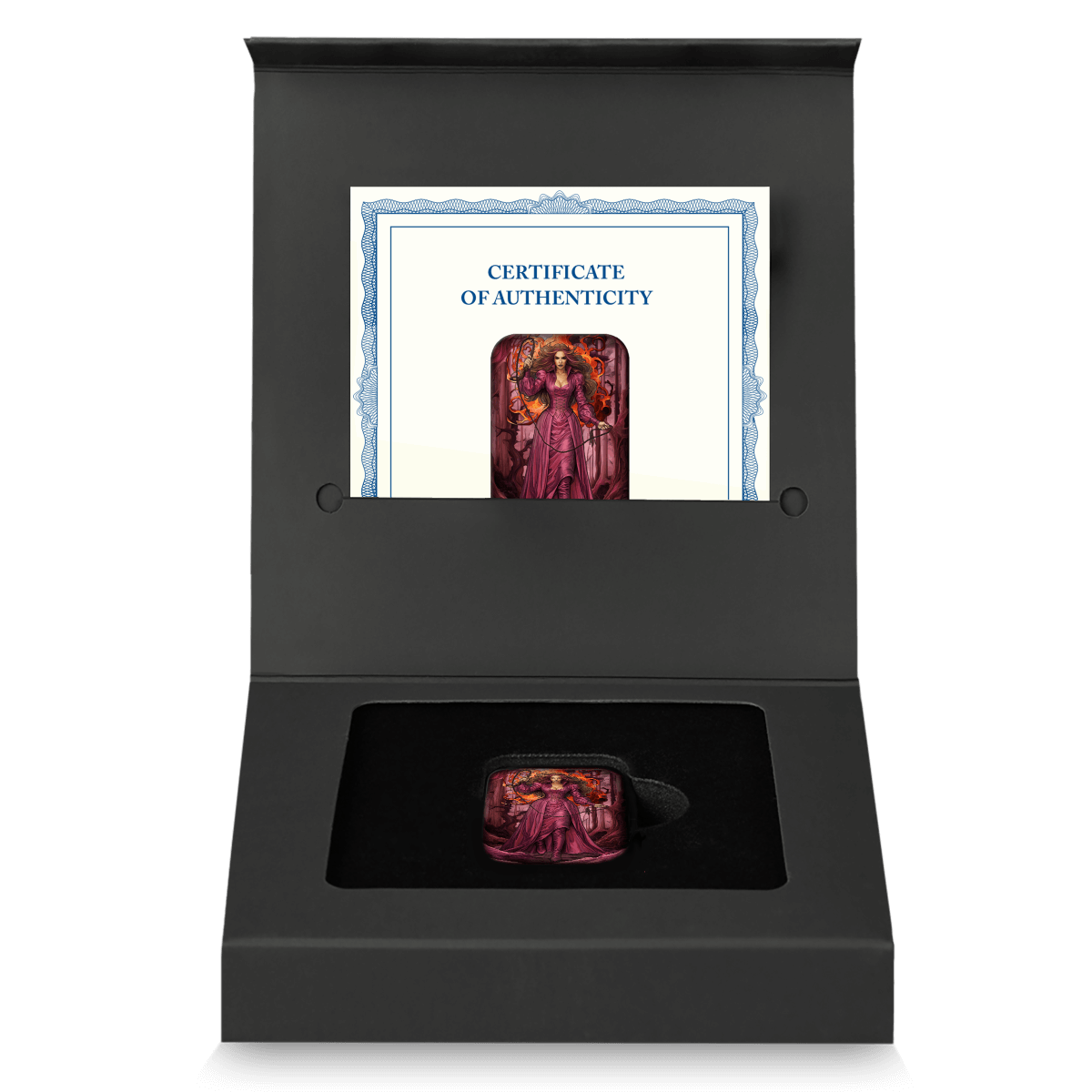2024 The Seven Deadly Sins Anger 2 oz Silver Colorized Premium Cast Bar
Original price was: $171.30.$150.00Current price is: $150.00. USD
Item specifics
| Year of Issue: | 2024 |
| Weight: | 2 oz |
| Composition: | Silver |
| Purity: | 0.9999 |
| Mintage: | 500 |
| Finish: | Antiqued |
| Special Feature: | Colorized, Individually Numbered |
| Diameter: | 40.13 x 25.07 x 7.5 mm |
| Certification: | Mint Certified |
| Packaging: | Display Box |
Description
Anger, one of the seven deadly sins in the Christian tradition, is an intense and uncontrolled emotion arising from feelings of anger, frustration or injustice. It is considered a sin when it manifests itself in destructive actions, desires for revenge, or even violence, exceeding a reasonable or justified emotional response to a situation.
This sin is associated with the loss of self-control and the ability to reason clearly, leading to impulsive and harmful decisions. It is often depicted with symbols of fire or figures in combat attitudes, reflecting the explosive and all-consuming nature of anger. Colours such as deep red are commonly used to illustrate this emotional state, underlining its intensity and destructive potential.
The concept of the cardinal sin of anger appears in various religions, primarily in Christianity, but it also has parallels in other traditions.
Here is how anger is understood and dealt with in different religious contexts:
- ChristianityIn Christianity, anger is one of the seven deadly sins. It is considered sinful because it can lead to hatred, revenge and other destructive behaviour. According to this view, anger in itself is not necessarily sinful, but it becomes sinful when it is acted out with malice or retained in the heart, which can alienate a person from God. Moderation and forgiveness are advised as remedies against anger. St. Thomas Aquinas, for example, distinguishes between righteous anger, which seeks to correct injustice, and sinful anger, which is disproportionate or impulsive.
- JudaismJudaism also sees anger as negative, especially when it provokes conflict or acts of violence. In the Talmud, it is suggested that an angry person can be susceptible to all kinds of sin. Jewish texts often promote patience and control over one’s impulses as key virtues for avoiding anger.
- IslamIslam teaches that anger must be controlled, as it can lead to irrational decisions and actions that are at odds with Islamic principles of justice and mercy. The Prophet Muhammad warned against anger, advising believers to seek refuge in God against the impulse of anger and to practice patience and calm in times of provocation.
- BuddhismIn Buddhism, anger is seen as one of the three roots of evil, along with desire and ignorance. Anger clouds the mind and hinders the path to nirvana. The practice of compassion, empathy and meditation are emphasised as methods of overcoming anger and other afflictive states of mind.
In all these traditions, anger is treated not only as a personal emotion, but also as a phenomenon that has significant moral and spiritual implications. Controlling anger is seen as essential for spiritual health and for living in harmony with others.
Reviews
There are no reviews yet.










Reviews
There are no reviews yet.